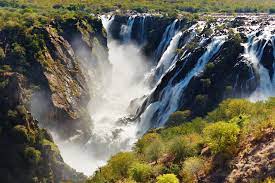
Angola Travel Vaccines and Advice
scape, discovery and relaxation, these are the words that can qualify your stay in Angola. Negligently mistaken by tourists, this country allows to enjoy all the charms of Africa.
It has many attractions such as museums, wild and unspoilt nature, an exciting culture, beaches, parks and nature reserves. Thanks to its tropical climate, this destination will enchant you, whatever the season.
You can also experience unique experiences thanks to its hunting and fishing traditions, its paradisiacal beaches and its unusual culture. In the evening, admire the dances of Angolan girls punctuated by traditional music. An exceptional show is at the rendezvous. In addition,
you can enjoy long hiking trails in the forests. It should be noted that the dry season is from May to September and the rainy season is between October and April.
HEALTH INFORMATION FOR ANGOLA
We make every effort to ensure that the information posted on our website is up to date and accurate according to the latest public health recommendations; however, it is impossible for us to make changes on a daily basis.
For the most current travel health recommendations, please call our clinic as make an appointment with one of our travel health professionals.
ANGOLA – RECOMMENDED VACCINES
| Hepatitis A | Recommended for all travelers. |
| Hepatitis B | Recommended for all travelers. |
| Causes, Symptoms & Treatment – Typhoid fever | Recommended for all travelers. |
| Tetanus – Diphteria – Pertussis Vaccine | Tetanus: In exceptional circumstances (eg, stay in a region where access to health care is limited), for a person aged 18 years or older, 1 dose of DT may be given if 5 years or more has elapsed since the last dose. Otherwise, one booster dose at the age of 50*. Pertussis (Whooping Cough): 1 dose is recommended for pregnant women, for every pregnancy, regardless of immunization history and the interval since the last dose (betwen week 26 and 32). *Only applicable for Quebec. |
| Polio | One-time booster recommended for any adult traveler who completed the childhood series but never had polio vaccine as an adult (after 18 years old only). |
| Measles – Rubella – Mumps | Two doses recommended for all travelers born after 1970, if not previously given. |
| Flu – Influenza | Seasonal influenza occurs worldwide. The flu season usually runs from November to April in the northern hemisphere, between April and October in the southern hemisphere and year round in the tropics. Influenza (flu) is caused by a virus spread from person to person through coughing and sneezing or by touching infected surfaces. Everyone 6 months and older should get a flu vaccine yearly. Vaccine is recommended 14 days prior to departure. |
| Routine vaccines (dCaT, Polio, Meningococcal, Shingles, Pneumococcal, Hepatitis B, HPV, MMR & Varicella) | Recommended for all travelers |
| African Tick Bite Fever | Presence. All travellers should protect themselves against tick bites. |
| Transmission, Symptoms and Prevention – Rabies | For travelers at high risk of animal bites or being involved in activities with bats, dogs and other mammals. Clients who plan to visit remote areas may consider receiving this vaccine. Important to note the pre-exposure rabies vaccine is administered in 2 doses with one week interval between doses. Post-exposure vaccination is always recommended, even for those previously vaccinated. |
| Schistosomiasis | Avoid swimming in fresh water. |
| Turista – Traveler’s Diarrhea (ETEC) | Talk to your health care professional about the risks and precautionary measures to take, as well as the Dukoral® vaccine. Important to note that the Dukoral vaccine is an oral vaccine given in 2 doses, recommended at least 2 weeks prior to departure. |
| Malaria | Malaria is present in this country. The risk may be region specific. Prophylaxis measures to be discussed with the health care professional. |
| Cholera | Recommended for humanitarian workers, health care providers and/or adults who are traveling to areas of active cholera transmission. |
| Dengue Fever, Chikungunya and/or Zika | There are many illnesses that are transmitted via mosquito bites and unfortunately we do not have vaccines to protect us against most of them. It is important to inquire with your healthcare professional regarding the specific risks and the different illnesses presently in circulation. |
| The Yellow Fever Vaccine |
A proof of vaccination against yellow fever may be required upon entry in to this country. Some travellers may not be eligible to receive this vaccine. Please enquire with your health care professional regarding your specific details. For further information, please consult with the World Health Organization (WHO) website: |
RECOMMENDED MEDICATIONS fOR tRAVELLING tO aNGOLA
| Antimalarials Recommended | Malarone, Doxycycline or Mefloquine |
| Acetazolamide/Dexaméthasone | Recommended to prevent Acute mountain sickness (AMS). |
| Antibiotics Traveler’s Diarrhea | Azithromycin or Suprax |
SECURITY ABROAD
Militant groups claiming independence are active in this province and clashes with security forces are possible.
CANADIAN EMBASSY
Emergency services
In case of emergency, dial:
- police: 113
- medical assistance: 116
- firefighters: 115
